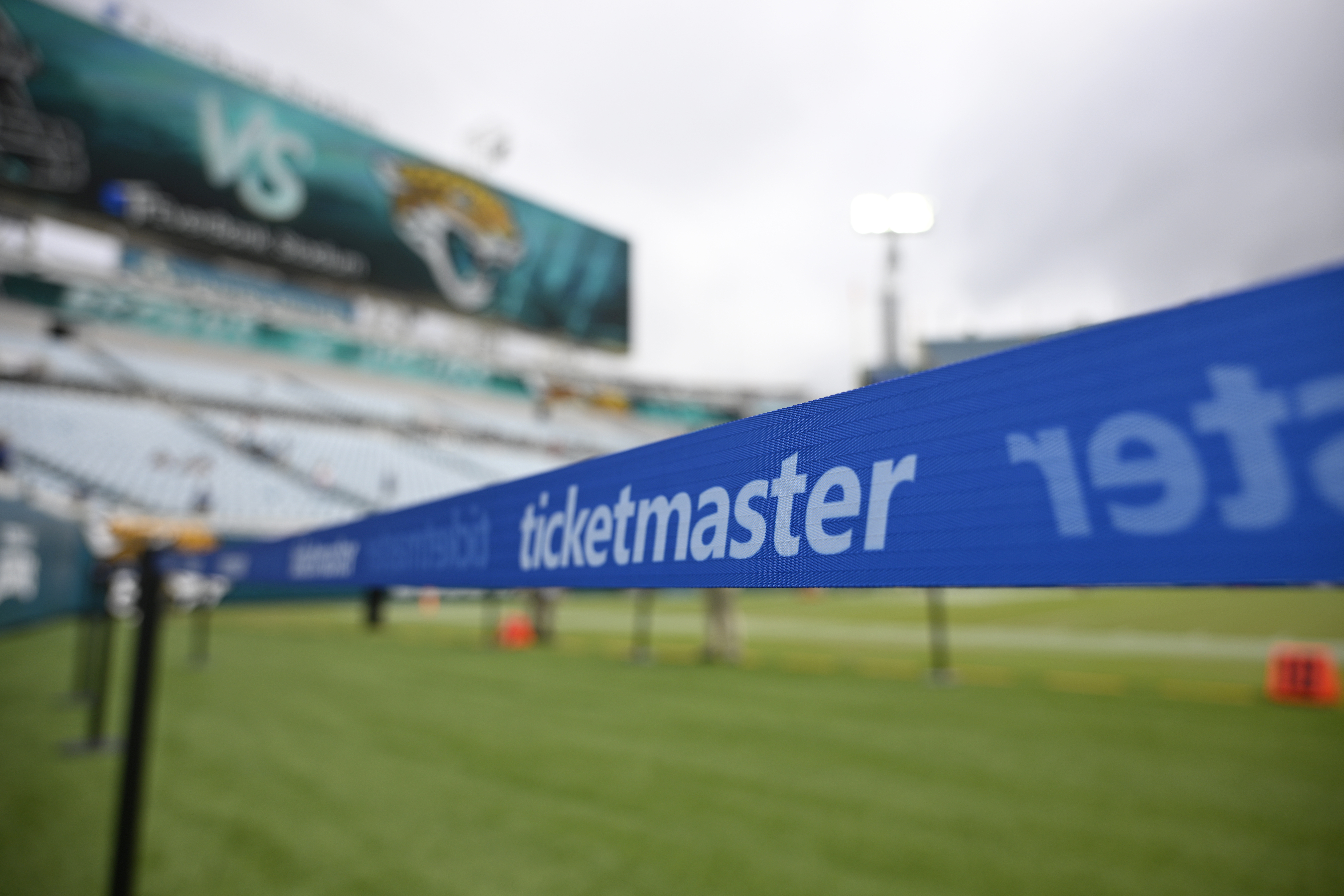Resort Fees: New Rule, But Are Hotels Really Changing?
Resort Fees Under Fire: New Disclosure Rules – Victory or Just a Mirage?
The Dawn of Transparency? Resort Fees Face the Music
Finally, some good news for weary travelers! A new U.S. rule, kicking in this week, aims to bring some much-needed transparency to the murky world of resort fees, those pesky "junk fees" that can inflate your hotel bill faster than a leaky raft. This rule mandates that hotels and short-term lodging companies must now disclose these fees upfront. But is this the end of the resort fee saga? Are we finally celebrating a victory for consumers, or is this just a mirage shimmering on the horizon?
What Are These "Junk Fees" Anyway?
Let's be honest: nobody *likes* resort fees. They’re like that unwanted houseguest who overstays their welcome and eats all your snacks. Officially, they're called "resort," "destination," or "hospitality service" fees. They claim to cover amenities that travelers often don't want or already expect to receive. Think "premium" internet (which is often slower than dial-up), access to a hotel gym (that you probably won't use anyway), or bottled water (that costs less at the corner store).
The Illusion of Added Value
Hotels often package these "perks" together, presenting them as an added value, but really, it's just a clever way to sneak in extra charges. It's like ordering a pizza and then being charged extra for the cardboard box – you're already paying for it implicitly!
The New Rule: Disclosure is Key
The Federal Trade Commission (FTC) announced this new rule back in December, and it's a direct shot at these widely despised charges. The core principle is simple: hotels must be upfront about all mandatory fees before you book. No more surprises when you get to the checkout counter!
Why Disclosure Matters
Think of it like this: imagine buying a car and only finding out about the "mandatory floor mat fee" and the "windshield wiper surcharge" after you've already signed the paperwork. You'd be furious, right? Disclosure allows consumers to make informed decisions, compare prices accurately, and avoid feeling ripped off.
Compliance: Are Hotels Playing Ball?
The good news is that some companies are already voluntarily complying with the new rule. Lauren Wolfe, counsel for Travelers United, points out that many hotels are taking proactive steps to be more transparent. But is everyone on board? Are all hotels truly committed to clear and honest pricing, or are some looking for loopholes?
The Carrot vs. the Stick
Ideally, hotels would embrace transparency because it's the right thing to do. But sometimes, a little enforcement is necessary. Will the FTC be able to effectively monitor compliance and crack down on those who try to skirt the rules?
The Enforcement Challenge: A Potential Roadblock
Here's where things get a little murky. Law professor Cathy Mansfield raises a critical point: cuts to the Federal Trade Commission and Consumer Financial Protection Bureau (CFPB) could hinder the enforcement of the rule. Without adequate resources, these agencies may struggle to effectively monitor compliance and penalize offenders.
The Underfunded Watchdog
Imagine a neighborhood watch program that's severely understaffed and lacks proper equipment. It might deter some criminals, but it's unlikely to be a truly effective deterrent. Similarly, if the FTC and CFPB are underfunded, they may not be able to fully enforce the new rule, leaving consumers vulnerable to continued exploitation.
The Long Game: Changing Consumer Behavior
Even with strong enforcement, changing ingrained business practices takes time. Resort fees have been around for years, and hotels have become accustomed to relying on them to boost their profits. Changing consumer behavior also plays a significant role.
Voting with Your Wallet
Ultimately, the most powerful tool we have as consumers is our wallets. By choosing to book with hotels that are transparent about their pricing and avoiding those that aren't, we can send a clear message that we won't tolerate hidden fees.
Beyond the U.S.: Resort Fees Around the World
While the U.S. is taking steps to address resort fees, it's worth noting that this is a global issue. Many countries around the world have similar hidden fees that can catch unsuspecting travelers off guard. So, what can you do to prepare for travel overseas?
Tips for Avoiding Hidden Fees Abroad
- Read the fine print: Always carefully review the terms and conditions before booking.
- Ask questions: Don't hesitate to contact the hotel directly and ask about any mandatory fees.
- Compare prices: Use online comparison tools to get a clear picture of the total cost of your stay.
- Consider alternatives: Explore alternative accommodation options, such as vacation rentals or boutique hotels, which may have more transparent pricing.
The Psychological Impact of Hidden Fees
The frustration associated with hidden fees isn't just about the money. It's about the feeling of being tricked or taken advantage of. This can sour your entire travel experience, leaving you feeling stressed and resentful. The psychological impact of these fees can be significant, even if the amount is relatively small.
The Erosion of Trust
Hidden fees erode trust between businesses and consumers. When companies are dishonest about their pricing, it creates a sense of distrust that can be difficult to overcome. Transparency is not just a legal requirement; it's also essential for building strong customer relationships.
The Future of Hotel Pricing: A Call for Honesty
The new disclosure rule is a step in the right direction, but it's not a magic bullet. Ultimately, the future of hotel pricing depends on a fundamental shift in attitude. Hotels need to embrace honesty and transparency, recognizing that building trust with customers is more valuable than short-term profits.
Moving Towards All-In Pricing
The ideal scenario would be a move towards all-in pricing, where the quoted price includes all mandatory fees. This would eliminate the need for complex disclosures and ensure that consumers know exactly what they're paying for.
The Role of Technology: Empowering Consumers
Technology can play a crucial role in empowering consumers to avoid hidden fees. There are now apps and websites that specifically track and expose resort fees, making it easier for travelers to make informed decisions. By leveraging technology, we can level the playing field and hold hotels accountable for their pricing practices.
Crowdsourcing Transparency
Imagine a platform where travelers can share their experiences with resort fees, rating hotels based on their transparency. This crowdsourced information would provide valuable insights for other consumers and incentivize hotels to improve their pricing practices.
Consumer Power: What You Can Do Right Now
Don't wait for the government to solve this problem entirely. You have the power to make a difference right now. Be a savvy traveler, do your research, and vote with your wallet.
Tips for Avoiding Resort Fees Today
- Ask about all-in pricing: When booking, specifically ask if the quoted price includes all mandatory fees.
- Read reviews carefully: Pay attention to reviews that mention hidden fees or deceptive pricing practices.
- Book directly: Sometimes booking directly with the hotel can give you more leverage to negotiate or avoid resort fees.
- Complain when necessary: If you encounter a hidden fee, don't hesitate to complain to the hotel and the FTC.
The Bottom Line: Progress, But More Work to Be Done
The new disclosure rule is a positive step towards greater transparency in hotel pricing. But it's not a guarantee that resort fees will disappear overnight. Effective enforcement and a shift in consumer behavior are essential to truly level the playing field and eliminate these deceptive charges. So, while the news is encouraging, remember that the fight against junk fees isn't over yet.
Conclusion: A Cautious Celebration
The new U.S. rule requiring disclosure of resort fees is undoubtedly a win for consumers, offering a glimmer of hope in the often-opaque world of hotel pricing. However, potential hurdles in enforcement and the ongoing need for consumer vigilance mean that the battle against hidden fees is far from over. This new regulation serves as a crucial step towards greater transparency and fairness, but it's only the beginning of a longer journey toward truly honest pricing in the hospitality industry. So, while we can raise a glass to progress, let's keep our eyes open and our wallets ready to vote for transparency.
Frequently Asked Questions (FAQs)
1. What exactly is a resort fee, and what does it typically cover?
A resort fee is a mandatory charge added to your hotel bill that is supposedly for amenities like internet access, gym access, pool access, or bottled water. However, these amenities are often already expected, and the fee can feel like a hidden charge.
2. How will the new disclosure rule help me as a traveler?
The new rule requires hotels to disclose all mandatory fees, including resort fees, upfront before you book. This allows you to compare prices accurately and avoid surprises when you get to the checkout counter. It also helps you make informed decisions about where to stay.
3. What can I do if a hotel doesn't disclose its resort fees properly?
If you encounter a hotel that isn't disclosing its resort fees upfront, you should complain to the hotel management and file a complaint with the Federal Trade Commission (FTC) and/or the Consumer Financial Protection Bureau (CFPB).
4. Does this new rule apply to all types of lodging, like Airbnb or VRBO?
Yes, the rule applies to all short-term lodging companies, including hotels, Airbnb, VRBO, and other similar platforms.
5. Are resort fees negotiable? What if I don't use the amenities they cover?
Resort fees are usually mandatory, so negotiating them can be difficult. However, it's always worth trying! Politely explain that you didn't use the amenities and ask if they can waive the fee. You might be surprised, especially if you're a loyal customer. If they don't budge, you can always dispute the charge with your credit card company, but be prepared to provide evidence.


